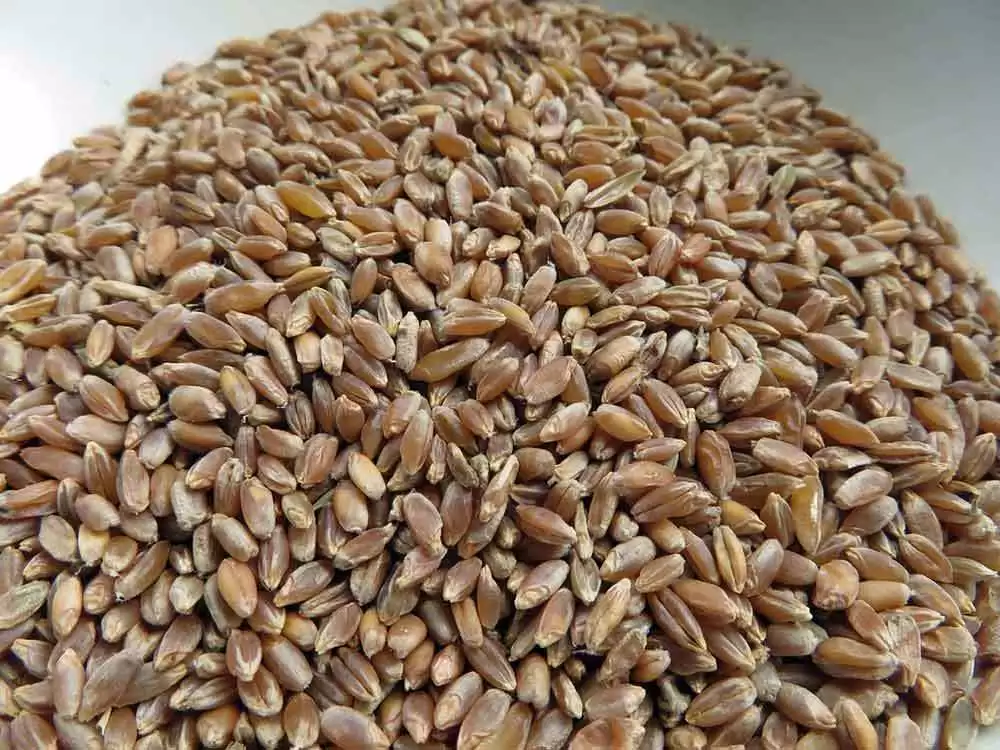
Celiac.com 02/10/2008 - Researchers have found a 10mer durum wheat peptide capable of shifting a Th1 gluten-intolerant T cell response to a Th2 gluten-tolerant T cell response in intestinal T cell cultures derived from celiac disease children and incubated with deamidated gliadin peptides. Durum wheat peptides could potentially treat celiac disease by causing celiac disease associated T cells to react tolerantly to gluten.
In the study, incubation of the T cell cultures with deamidated gliadin peptides resulted in a significant increase in T cell proliferation and interferon-gamma release. Simultaneous exposure to duram wheat peptides totally abolished the cell proliferation and cytokine release while maintaining an elevated release of interleukin-10 (IL-10).
Celiac.com Sponsor (A12):
The workings of the immune system are too complex to discuss here in detail. Basically when a "pre-helper" CD4-type T cell is presented with an epitope from an antigen (gliadin), the T cell becomes activated and responds to the stimulus by becoming either a type 1 or type 2 helper T cell which in turn releases different subsets of cytokines. The Th1 path promotes mucosal tissue destruction in celiac disease while the Th2 path initiates proliferation of gluten and tTGase antibodies. Th1 and Th2 cytokines each have properties which act in a feedback loop to suppress, limit, and regulate each other's cytokine secretions, i.e. Th1 cytokines suppress Th2 cytokine secretion and vice vesa.
Overactivity of either a Th1 or a Th2 response can result in an autoimmune condition. Researchers theorize that balancing Th1/Th2 response can ameliorate and control symptoms and disease progression in at least some autoimmune diseases. Th1 response includes release of the cytokine interferon-gamma which differentiates and activates macrophages. Th2 response can include the release of IL-10, a cytokine which suppresses inflammation and promotes antigen tolerance. Various molecules have been demonstrated to shift Th1/Th2 response in various autoimmune disorders. In the durum wheat study, the presence of the durum wheat peptide in the gliadin peptide incubated celiac intestinal T cell culture increased Th2 IL-10 release and stopped T cell proliferation and Th1 interferon-gamma release. Hence, this durum wheat peptide may be useful as a celiac disease therapy. How effective this treatment may be is unknown at this time.
Below is an example of sodium benzoate being used to shift Th1 to Th2 response in a mouse model of multiple sclerosis which improved symptoms and disease progression when fed to the mice orally. This suggests that the durum wheat peptide could potentially treat celiac disease by simply being administered as an oral supplement. However, if a probiotic bacteria could be genetically engineered to continuously secrete a form of this durum wheat peptide in the gut, this could result in essentially a "cure" for celiac disease if the durum wheat peptide proves effective.
----------
Am J Clin Nutr. 2008 Feb;87(2):415-23.
A 10-residue peptide from durum wheat promotes a shift from a Th1-type response toward a Th2-type response in celiac disease.
Silano M, Di Benedetto R, Maialetti F, De Vincenzi A, Calcaterra R, Trecca A, De Vincenzi M.
Division of Food Science, Human Nutrition and Health, Istituto Superiore di Sanita, Rome, Italy.
http://www.ajcn.org/cgi/content/abstract/87/2/415
----------
J Immunol. 2007 Jul 1;179(1):275-83.
Sodium benzoate, a food additive and a metabolite of cinnamon, modifies T cells at multiple steps and inhibits adoptive transfer of experimental allergic encephalomyelitis.
Brahmachari S, Pahan K.
Department of Neurological Sciences, Rush University Medical Center, 1735 West Harrison Street, Chicago, IL 60612, USA.
http://www.jimmunol.org/cgi/content/abstract/179/1/275
* * *









Recommended Comments